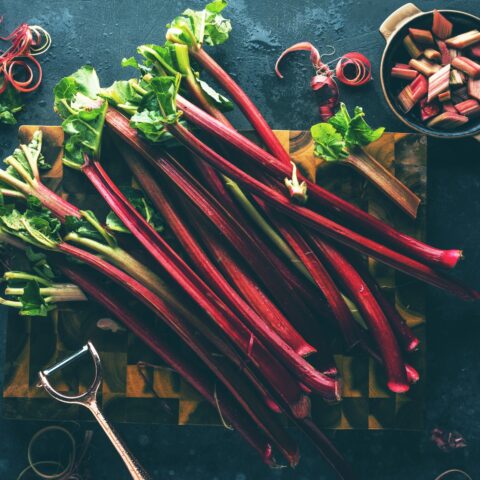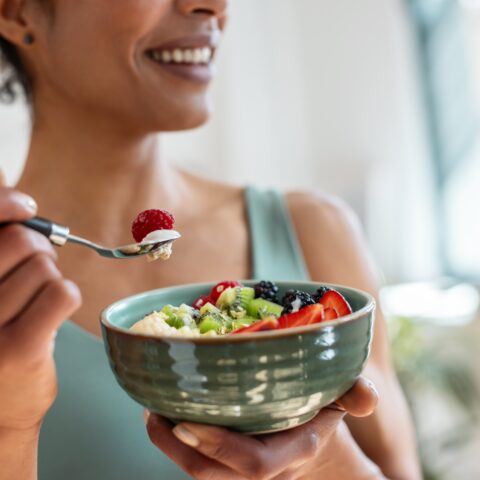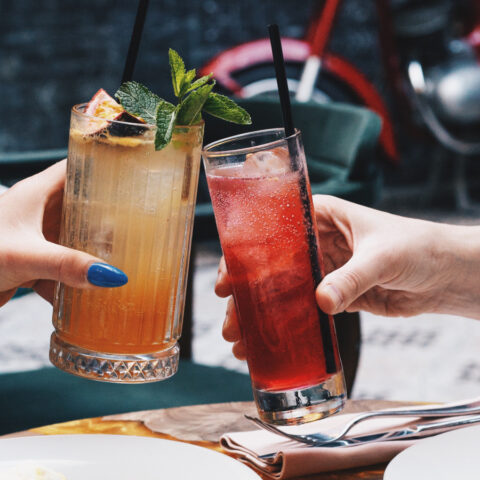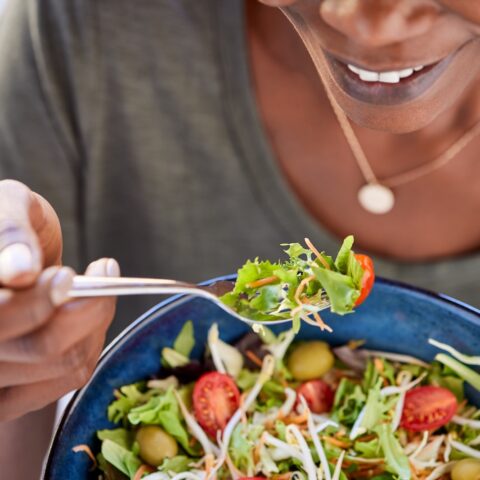How to Maintain Your Digestive Health Over the Holidays
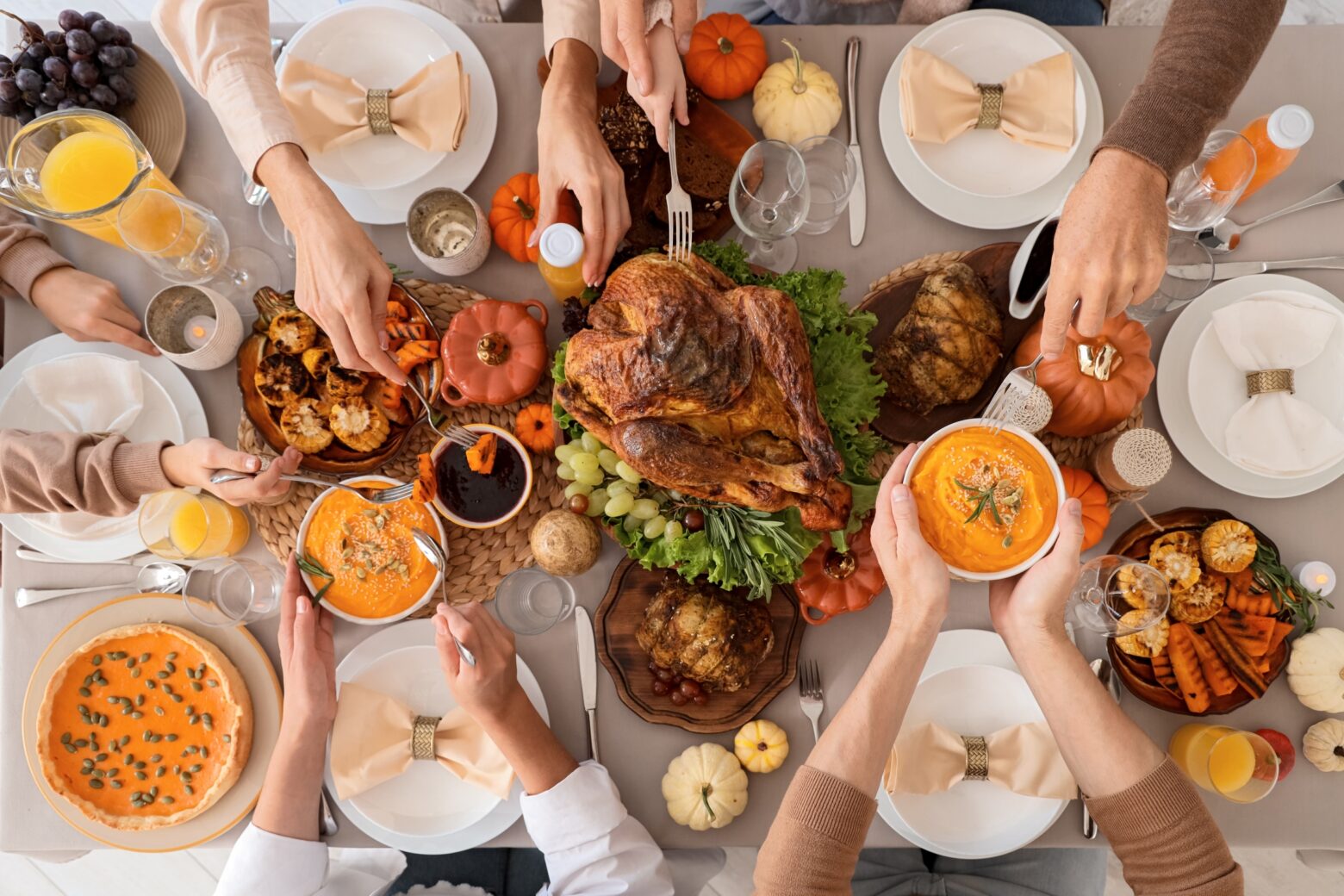
There’s so much to look forward to in the holiday season. The music, the decorations, the parties, and—most especially—the food! For many of us, cultural and family traditions with special meals and treats are at the center of our celebrations. These meals are tied to memories and time spent with loved ones. Food is part of what makes the season feel special.
So while you might be excited to enjoy your family’s pumpkin pie or gingerbread cookies, at the same time you may also be dreading the effects these holiday treats can have on your digestive health. That’s for good reason, says Dr. Brian Keenan a naturopathic physician and doctor of Oriental medicine in Maryland.
“There are myriad reasons people have digestive issues during the holidays,” he explains. “The most common ones come from indulgences; for instance, heavy or high-fat meals delay gastric emptying, sugar and alcohol can ferment in the gut and alter microbial balance, and people tend to ‘cheat’ on their food sensitivities. Add in dehydration, lack of sleep, and emotional stress, and you have the perfect storm for slowed motility and increased gas production.”
Your concerns about having a happy gut over the holiday months are real, but don’t worry—there are ways you can still enjoy communal meals and gatherings while prioritizing your digestive health. Here’s how.
Practice Good Meal Hygiene
Ever heard of mindful eating? A simple way of thinking about this is to pay attention to how you’re eating, not just what you’re eating. This matters because digestion begins in the mouth, so it’s best if your body is in a calm and relaxed state to break down and absorb food effectively. When you slow down and bring awareness to your meal, you support your digestive health before the food even reaches your stomach.
Dr. Keenan suggests, “Remember not to rush while you’re eating, chew your food completely, stop eating when you start to feel full, try not to eat when anxious or stressed.”
It doesn’t have to be perfect: try choosing mindfulness when and where you can in the midst of the holiday season. For example, Dr. Keenan shares of his personal practice, “I may be in a busy food court in an airport, but I can control how fast or slow I chew, how much I pay attention to the flavors, or I can listen to music that’s more soothing than a podcast.”
RELATED: Rediscovering Body Literacy in a World of Diet Culture Noise
Eat Fermented Foods
A simple way to keep things moving and grooving in your gut is to prioritize eating fermented foods every day. After all, these foods contain beneficial bacteria (lactic acid bacteria, bifidobacteria) and other compounds (short-chain fatty acids, bioactive peptides that support your overall digestive health, including the gut barrier and immune function.1–3
“Find the fermented foods you like,” Dr. Keenan concurs. “Sauerkraut, kimchi—there are dozens of ways to get your dietary probiotics. Yes, you can supplement, but I would love if people could eat fermented vegetables daily. They provide probiotics, fiber, and phytochemicals that are the true daily tonics of the food world.”
You don’t have to go overboard on the sauerkraut or yogurt, though—it’s fine to use fermented foods as condiments or small snacks. Especially as storebought fermented foods tend to be high in salt and sugar and therefore not Paleo, it’s best to make your own at home or enjoy sparingly. Even a few bites can be beneficial.
Eat Fiber-Rich Foods
Fiber has huge benefits, not only for your gut, but for your whole body. Eating more fiber is strongly linked to better overall health, including a lower risk of heart disease, type 2 diabetes, obesity, and some cancers, and it is also linked to a longer lifespan.4 This is because fiber helps the body use insulin more effectively, supports healthy appetite control, and reduces long-term inflammation in the body, which lowers the risk of developing chronic disease.
It’s important to continue eating fiber in times of travel, stress, or when you are not eating your regular diet.5 During these potentially disrupting events, fiber helps maintain regular digestion, prevents constipation, and provides fuel for beneficial gut bacteria, which may otherwise decrease when routine and food patterns shift.
To get your fiber in, “eat a rainbow,” suggests Dr. Keenan. Fiber-rich foods include berries, avocados, broccoli, cabbage, Brussels sprouts, dried fruits, leafy greens, and more.
Limit Inflammatory Foods
You don’t have to avoid non-Paleo foods completely, but it may be worth it to limit your intake of inflammatory foods that you’re sensitive to, like gluten, dairy, or sugar.
Dr. Keenan advises his patients consume the foods they want from “an empowered place of understanding.” For example, if you know you’re heading to the office holiday party at 6 p.m., maybe skip the bagel at breakfast and the sweet treat after lunch—this is a simple way to not overload your system with foods that may not always agree with you.
And if you do find that you’ve overindulged on these foods, Dr. Keenen says: “You can add in some digestive enzymes and/or bitters before a meal to increase digestive fire, and carminative herbs like mint or fennel after meals to relax the gut so food moves more smoothly.”
RELATED: How Drinking with Meals Impacts Digestion
Manage Stress
Can stress really affect your digestive health? Resoundingly yes, says both research and the lived experience of millions of us.
Stress activates the hypothalamic-pituitary-adrenal axis. This causes the body to release chemicals like corticotropin-releasing factor and stress hormones called glucocorticoids. These chemicals can disrupt the normal balance of the gut, and the intestinal lining may become more permeable (often called “leaky gut”). These effects can worsen or even trigger inflammatory gastrointestinal conditions.6–8
“Stress puts your body in a pseudo (or acute) version of fight or flight, and the body naturally adapts by shunting energy and blood flow away from digestion,” explains Dr. Keenan. “It’s not time to have a sandwich when you might need to run from a bear!”
Of course, keeping stress low is easier said than done in a season where you’re managing a million things, from holiday shopping to family drama. Whatever ways you typically support your nervous system to feel calmer—whether that’s meditation, exercise, body work, activities with family and friends, or spending time in the sunshine each day—make time to prioritize those as much as you can.
RELATED: Why Staying Paleo Can Help Beat Holiday Stress
This holiday season, lean into balance. Add in support with fermented foods and fiber, practice mindful eating, and manage stress in ways that feel doable for you. Above all, enjoy your favorite foods knowing that small habits can keep your digestive health in good shape.
References
- Leeuwendaal, N. K., Stanton, C., O’Toole, P. W., & Beresford, T. P. (2022). Fermented Foods, Health and the Gut Microbiome. Nutrients, 14(7), 1527. https://doi.org/10.3390/nu14071527
- Park, I., & Mannaa, M. (2025). Fermented Foods as Functional Systems: Microbial Communities and Metabolites Influencing Gut Health and Systemic Outcomes. Foods (Basel, Switzerland), 14(13), 2292. https://doi.org/10.3390/foods14132292
- Terpou, A., Dahiya, D., & Nigam, P. S. (2025). Evolving Dynamics of Fermented Food Microbiota and the Gut Microenvironment: Strategic Pathways to Enhance Human Health. Foods (Basel, Switzerland), 14(13), 2361. https://doi.org/10.3390/foods14132361
- Barber, T. M., Kabisch, S., Pfeiffer, A. F. H., & Weickert, M. O. (2020). The Health Benefits of Dietary Fibre. Nutrients, 12(10), 3209. https://doi.org/10.3390/nu12103209
- Ng, H. M., Wall, C. L., Bayer, S. B., Gearry, R. B., & Roy, N. C. (2025). The interconnection between dietary fibre, gut microbiome and psychological well-being. The Proceedings of the Nutrition Society, 1–10. Advance online publication. https://doi.org/10.1017/S002966512510061X
- Zhang, H., Wang, Z., Wang, G., Song, X., Qian, Y., Liao, Z., Sui, L., Ai, L., & Xia, Y. (2023). Understanding the Connection between Gut Homeostasis and Psychological Stress. The Journal of nutrition, 153(4), 924–939. https://doi.org/10.1016/j.tjnut.2023.01.026
- Marwaha, K., Cain, R., Asmis, K., Czaplinski, K., Holland, N., Mayer, D. C. G., & Chacon, J. (2025). Exploring the complex relationship between psychosocial stress and the gut microbiome: implications for inflammation and immune modulation. Journal of applied physiology (Bethesda, Md.: 1985), 138(2), 518–535. https://doi.org/10.1152/japplphysiol.00652.2024
- Labanski, A., Langhorst, J., Engler, H., & Elsenbruch, S. (2020). Stress and the brain-gut axis in functional and chronic-inflammatory gastrointestinal diseases: A transdisciplinary challenge. Psychoneuroendocrinology, 111, 104501. https://doi.org/10.1016/j.psyneuen.2019.104501
Carrie Murphy
Carrie Murphy is a writer, mother, and doula. She works to create accessible content that helps people make informed decisions about their bodies and health.
More About The Author
